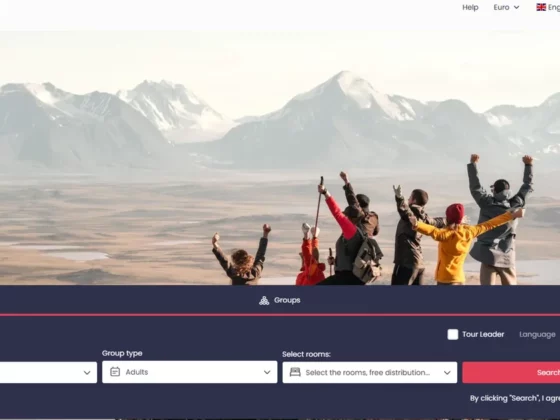Last year, we witnessed the gradual recovery of the global tourism industry from the devastating impact of the COVID-19 pandemic. As economies reopened and travel restrictions eased, consumers embraced revenge travel, leading to a surge in demand for leisure and hospitality services. However, the industry continues to grapple with a persistent labor shortage. In this updated article, we explore the causes of the labor shortage and delve into the solutions that the hospitality industry is adopting in 2023. While technology plays a crucial role in alleviating the workforce crunch, the focus remains on prioritizing employee well-being to attract and retain talent.
Updates on Hospitality Staffing
Below are the major changes we’ve witnessed in the hospitality staffing landscape in the last year.
- Embracing the Post-Pandemic Travel Boom
There has been a resurgence of travel and tourism in 2023 as borders reopen, vaccination rates rise, and consumers eagerly embark on revenge travel, rejuvenating the industry after a prolonged period of restrictions. - Industry-Wide Focus on Employee Well-Being
There is now a growing recognition within the industry of the importance of prioritizing employee well-being, mental health, flexible work arrangements, and improved work-life balance to attract and retain talent in the face of the labor shortage. - Technology as a Solution
Hotels and F&B businesses in 2023 are leveraging innovative solutions like robotic process automation, physical robots, payment and communications platforms, CRM systems, and workflow automation to increase operational efficiency, enhance the guest experience, and offset labor shortages. - Collaborative Efforts by Professional Associations
Professional associations, such as the American Hotel & Lodging Association (AHLA), have played a crucial role played in providing support and resources and addressing ongoing labor shortage challenges. - Building Digital Ecosystems
In 2023 there’s an increased focus on digitalization, as hotels and F&B operations invest in building effective digital ecosystems to streamline operations, optimize processes, and achieve organizational goals, while also supporting employee well-being and work-life balance. - Long-Term Strategies and Incremental Steps
Companies should adopt long-term strategies and take incremental steps towards addressing the labor shortage, such as identifying small but impactful use cases for technology implementation, evaluating their success, and scaling up solutions to contribute to the collective industry-wide effort.
The labor shortage is not a new problem, but with demand for leisure and travel increasing sharply while airlines, hotels, and F&B businesses struggle to bring back furloughed or hire new employees, the imbalance has been crippling and is amplifying the familiar staffing issue in the industry. As Rosanna Maietta, EVP of Communications & PR at the American Hotel & Lodging Association, puts it: “we have more people traveling than working [in the industry]”.


We recently published a series of interviews with experts from the hospitality industry from all over the world to take a closer look at the causes of and solutions to the current labor shortage in the hospitality industry. You can read those interviews here, here, here, and here. Below, we share and analyze some of the key takeaways from these conversations. Let’s take a closer look.
Work Landscape Changes
Today’s shortage of staff can be attributed to a number of compounding factors. Traditionally an industry with long and irregular hours, former employees are not willing to come back to their old jobs due to the increased workload owed to, precisely, the lack of staff. The reputation held by the industry and its careers – that of low pay, long hours, bad benefits, and poor work-life balance – also affects the perception of potential new hires and exacerbates the difficulties in hiring and keeping talent.
Additionally, the last two years have seen an increased focus on mental health and flexible work arrangements, with these being some of the top priorities of current job seekers, as observed by talent acquisition teams across all industries.


More recently, some people have also seen a shift in priorities on the owners’ side. As Danica Smith, Director of Product Engagement at Shiji Group, pointed out in our conversation here, her staff’s focus when pitching their platform’s services to hotel owners has gone from highlighting the benefits for guest experience to talking about how it can remove some of the workloads and help reduce internal staff’s burnout and boost retention.
Tackling Labor Shortage Issues
While the situation is currently unfavorable for hoteliers, it is far from a lost battle, and ideas on how to tackle the crunch are as diverse as the industry itself.
There is a general understanding that governments should play a part in mitigating the severity of the crisis by facilitating regulations aligned with current job market expectations and that individuals have a duty to put pressure on their governments towards achieving this. But there is also plenty that can be done on the companies’ side, and the general consensus is that changing the image of the industry is a crucial step to recovery.
The Hospitality Industry is a people business, and implementing measures to support our own people – the staff – is a great way to begin. Ensuring fair compensation, benefits, flexibility, career development, and a truly caring work environment will result in happier employees who are dedicated to the company and to caring for the guests. As Gefferson Alves, Managing Director at Ba’ra Hotel Joao Pessoa, said in an interview: “We can’t have happy guests if the staff aren’t happy with their jobs, and our job as hoteliers is to provide them with support and opportunity. Let’s treat people the way they should be treated, let’s pay them more not because we have to, but because we want to, and because we want to keep our business alive not only for the next five or ten years but for the next twenty.” Listening to our employees will tell us what is important and valuable to them and give us a direction to work towards. Happy employees will stay longer with the company (and maybe even become advocates), reduce wastage of resources in rehiring and training new people, provide better customer service, and ultimately help to create a better overall image of the industry.


Professional associations such as the American Hotel & Lodging Association are also important players in pushing the industry to greater heights with support, resources, and campaigns such as “A Place to Stay,” as introduced to us by AHLA’s EVP of Communications & PR Rosanna Maietta in this part of our series. Associations serve as a repository of information and are constantly gathering more and more insights into the local ecosystem, making them a great place to discuss and think up new strategies and define best practices.
Gartner recently released a report on attracting and retaining talent in tech roles that accurately applies to hospitality as well. It mentions human-centricity, driving cultural change, talent diversity, data literacy, and task automation as pillars. Sound familiar? That is because technology is a key tool for hoteliers to rely on for their efforts in improving the labor shortage.
An increasing number of software and tech services are becoming available to hotels and F&B operations, such as robotic process automation (RPA), physical robots, payment, and communications solutions, CRM systems, workflow automation enablers, and so many others, allowing improvements in virtually every aspect of the business. The collection of data about the customers and their relationship with the brands makes it possible for us to analyze our processes and generate useful reports in a way that was never imagined before, guiding us in providing exceptional customer experiences. Similarly, the collection of data is also extremely beneficial internally in the form of more accurate and relevant reports that collate information from different functions, which top management and strategists can use to make the best possible decisions and free up their time to look at the big picture when leading their teams.


Guests are returning to hotels in droves but we’re still having trouble finding all the staff needed. Thankfully, we can leverage the benefits of technology to minimize the negative impacts the labor shortage has. Technology is a way to increase efficiencies, along with enhancing the job experience, as opposed to replacing people. Whichever service or software is adopted, a modern tech stack is pivotal in bringing businesses to the next level and for coping with the current challenges, and all solutions must interface seamlessly to avoid information silos. The diversified tech landscape also includes smaller operators, with SaaS options lowering the initial investment needed to upgrade their processes.
Some incremental investment is necessary, but so is digitalization nowadays. Building an effective digital ecosystem will help companies achieve their goals, including caring for staff and even working towards achieving the coveted work-life balance and flexibility that current talent seeks.
However, as we look to leverage technology, we must remember that hospitality is a services business. Technology can aid us, but ultimately, guests return because of an excellent experience and excellent service, so teams would do well to maintain or strengthen their levels of service in everything from housekeeping to the front desk, and remind current staff of this importance.
The measures mentioned in this article are largely a long game, but a journey of a thousand miles begins with a single step. Can your company afford not to take its first step right now? Follow RobosizeME founder Stephen Burke’s advice: Pick a small but painful use case, implement an idea, evaluate its success, and scale from there. Each individual company’s step will surely add up in our industry’s collective thousand-mile journey and bring us closer to success in navigating the staffing crisis.






